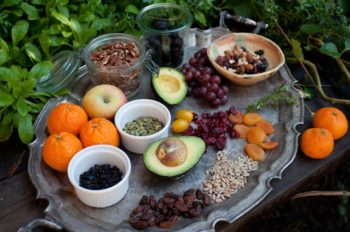Jews in Israel and around the world will celebrate the minor but joyful holiday called Tu B’Shvat this January 31. Tu B’Shvat translates as the 15th day of the 7th month of the Bible-based lunar year, Shvat. Known as the New Year for Trees, the holiday stems from the command of Leviticus 19:23: “When you enter the land and plant any kind of fruit tree, regard its fruit as forbidden. For three years you are to consider it forbidden; it must not be eaten.”
Implementing this command was not simple. How were the Israelites to remember the age of each and every tree in the country? To avoid an unmanageable administrative task, it was decided the “birthday” of all trees would occur on the 15th day of the 7th month of the year in which that tree was planted. The ancient reasoning was that by the Shvat 15, the heaviest of winter rains would likely have fallen. Moreover, some trees species, such as the almond, would soon blossom. Within weeks those trees would bear fruit, many more of which could then be eaten that same year.
The literal command of Leviticus 19:23 is not much observed today. It still provides occasion, however, for an annual dedication of creation to its Creator. YHVH reigns supreme over all He has made and delegated to our care. The earth is His and the fullness thereof. (Psalm 24:1) In every detail of creation, God expresses holy love and compassionate sustenance of life. The three year period of tree dedication reminds us we are just stewards, not owners, of this planet. Every good and perfect gift on it comes from Him.
Around the world, many Jews now host Tu B’Shvat seder (ordered liturgy) parties. Celebrants enjoy dried, as well as fresh, fruit and nuts, with happy thanksgiving to God. The Tu B’shvat seder is a very recent phenomenon, and appropriate for all followers of YHVH. Emphasis is usually placed on God’s prophetic restoration of the Promised Land, which is now miraculously fruitful. (Observance of the original Leviticus 19:23 command is another matter – and post.)
In the book of Genesis, God gave humankind a life-and-death command about eating the fruit of trees. We all know the tragic result of our forebears’ disobedience to that command. But we also look forward to a future tree of life yielding spectacular fruit year round, the leaves of which will heal nations. (Revelation 22:2) God is a glorious Redeemer and Restorer, worthy of special praise on Tu B’Shvat.
In the Scripture, people are sometimes compared to trees. “Blessed is the man … whose delight is in the law [or Word] of the Lord…. He is like a tree planted by streams of water, which yields its fruit in season and whose leaf does not wither. Whatever he does prospers.” (Psalm 1:1-3) If the first fruits of trees are to be dedicated to YHVH, ought not the first fruits of all we humans produce be dedicated and given to Him as well? Tu B’Shvat can serve as a time to do just that.
Tu B’Shvat was remembered, without much special observance, during the Jews’ 2,000 year exile from Israel. Sadly, during the many centuries of Islamic rule in the land, most trees here were intentionally chopped down and destroyed. At the turn of the 20th century, however, Zionist pioneers began re-planting trees to help revive the land. They knew trees were needed for ecological, agricultural, industrial and other purposes. Today, trees in Israel yield an array of amazingly sweet and juicy fruit exported and enjoyed around the world.
It is said the only nation on earth that had more trees in the year 2000 than in 1900. But the country still needs more trees and greater environmental development. You can help meet this need and tangibly bless Israel by purchasing a tree or other environmental support at https://www.jnf.org/menu-2/our-work/forestry-green-innovations. If you purchase a tree, the JNF will do the physical planting, but you will receive a certificate attesting to your own tree in the Holy Land. “The fruit of the righteous is a tree of life.” (Proverbs 11:30) Happy Tu B’Shvat!


